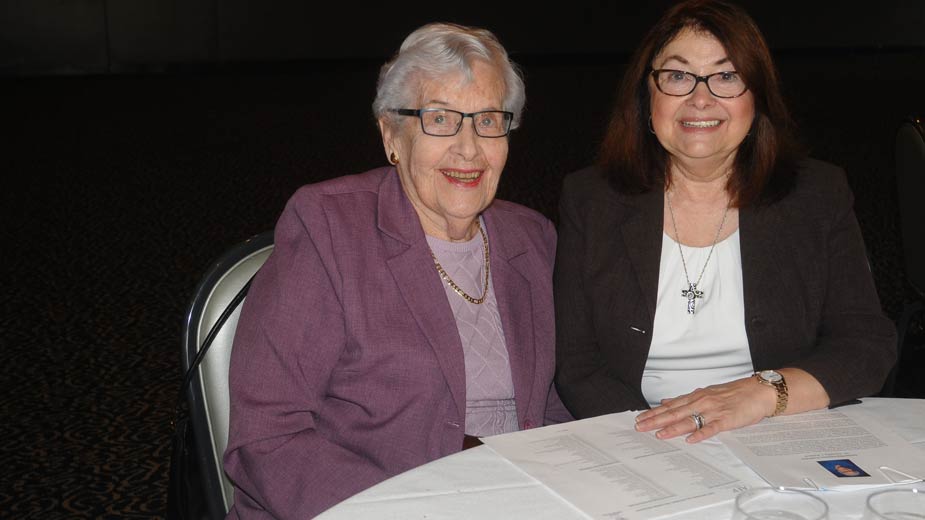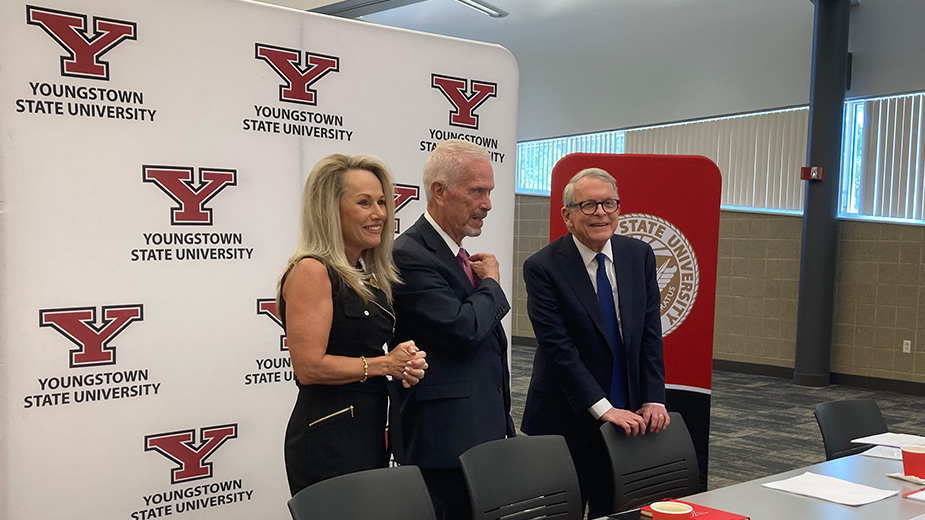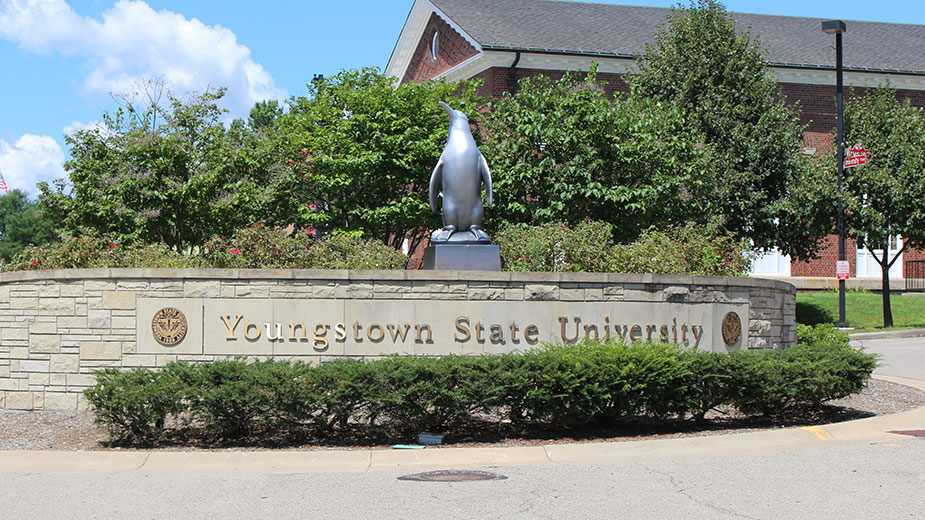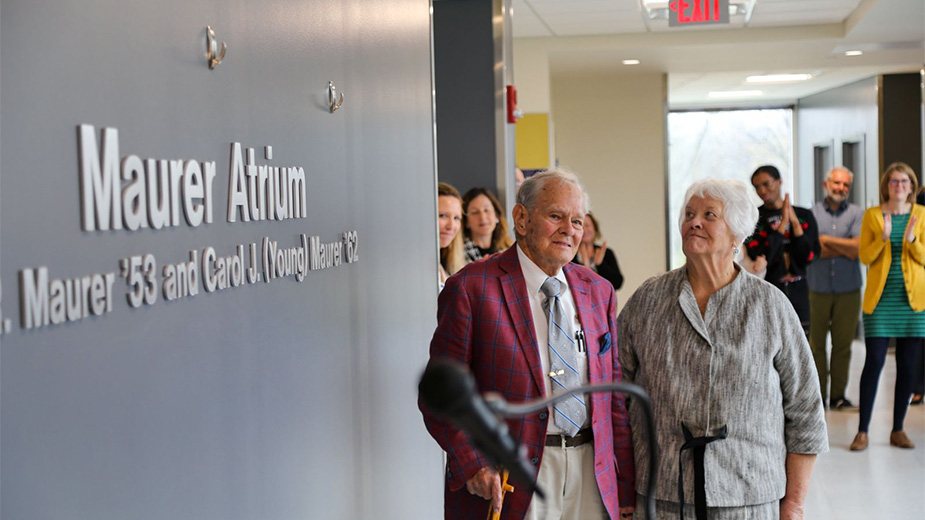Pollock Gives Her Time, Treasure to Westminster
YOUNGSTOWN, Ohio — When Dorothy Pollock placed a call with a request on behalf of Westminster College, the person at the other end of the phone line was well aware she wasn’t asking for something she hadn’t already done herself.
“No matter what it was – whether it was for the annual fund or for putting up a building, she made a major gift first. And then she’d say, ‘Now, I can go and ask,’ ” says Gloria Cagigas, retired vice president for advancement at the college in New Wilmington, Pa.
The Mahoning-Shenango Chapter of the Association of Fundraising Professionals will recognize Pollock, now 91, as this year’s Outstanding Volunteer Fundraiser at its annual awards luncheon Nov. 18.
Pollock, who grew up in McKeesport, Pa., is a 1946 graduate of Westminster, which she attended on an academic scholarship. She did her graduate work at the University of Cincinnati before pursing a career in chemistry – at that time a field not exactly welcoming to women.
“But I didn’t know that,” she says with a laugh. “It’s fun to be called a pioneer now.”
Pollock’s high school chemistry teacher sparked her interest in the field, someone who “just floored me,” she recalls.
“He made me so interested as a junior in high school that I decided right then I wanted to be a chemist. I really didn’t know – how could I have known? – that women didn’t do that in those days,” she says. “But I had a wonderful career. I didn’t let that bother me, and I don’t regret that I did it at all.”
Pollock’s career started at “the very beginnings” of polymer research, spurred by the wartime scarcity of natural rubber.
“The government took over the research part and established a program over the whole country to develop synthetic rubber,” she recalls. “From that, there are more polymers now than I can even mention to you.” Her career took her to research positions at the Mellon Institute of Industrial Research, Koppers Co. and Atlantic Richfield Co. before she retired in 1981.
Pollock grew up in a family that made philanthropy a priority. Her philanthropy began when she was taught to tithe to her church.
“My parents did, so I learned how important it was to give back to God and to thank all that has been given to me, and then it has grown into other things, too.”
Among the recipients of her philanthropy is her alma mater, she says.
“From the time she graduated, she was very supportive of the college,” Cagigas affirms.
“To me, it’s important that those who have graduated make a great effort to give of their time and their talent and their money so the younger ones can enjoy all the advantages that I have had because somebody else was a philanthropist,” Pollock says.
Pollock “gave quietly, and that was her success,” Cagigas says. “She would be able to ask you to do something [because] she’d always do it first.”
Upon her retirement, Pollock began volunteering in Westminster’s alumni office, where she served on the annual fund committee, and she served two terms on the college board of trustees. She received an honorary doctorate in public service in 2004.
While on the alumni council fundraising committee, from 1996 to 2012, she raised more than $300,000 for the scholarship program.
“Dorothy and I worked together 25-plus years. In my time in philanthropy, particularly at Westminster College, she did everything,” Cagigas says.
One year, she continues, Pollock wrote 500 thank-you notes by hand “and we would have people call and say, ‘What a wonderful note from Dorothy.’ ”
Pollock also accompanied development office staff on fundraising campaign trips when she was knowledgeable about the prospects.
“She involved alumni who were considered lost alumni. She brought them back,” Cagigas says.
In one instance, she introduced Westminster officials to “a lovely couple” when they didn’t realize the wife was an alumna. She wrote a book on a house the university wanted to renovate, which became a fundraising piece for the project.
In addition, Pollock developed and coordinated an annual “Leadership Weekend” summer workshop to train alumni volunteers.
Cagigas says Pollock’s professional background was an asset when discussions were held about launching a new program. “She would say, ‘Let me think about some process or how we might go about that.’ ”
Her other efforts involved launching alumni clubs, based on her research of where alumni lived to determine the best regions for the organizations.
“She’s a bright woman, generous. She’s 91 and I swear her calendar is more full than mine,” Cagigas says. “She’s very loved, very respected.”
Pictured: Dorothy Pollock always makes a “major gift first” before she asks others to contribute, says Gloria Cagigas, who nominated her for recognition Nov. 18 on National Philanthropy Day.
Copyright 2024 The Business Journal, Youngstown, Ohio.



